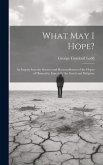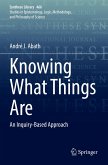This dissertation is an elucidation of the nature of the self. It consists of two major parts. The first part is an investigation of the necessary and sufficient conditions of the self, appealing to four theses: the Conceivability Thesis, the Equilibrium Thesis, Panpsychism and the Multiple Selves Doctrine and the Locus Thesis. Proponents of these views are examined in detail, including Descartes, Avicenna, Strawson, Parfit and Dennett. The conditions of selfhood are established through an examination of the individual's perception and how they arrange their perceptions. The second part of the dissertation discusses the influences of the outside or others' perception of a self, and how this can influence an individual's own impression of the self. This is considered using as examples the psychological disorders of autism and schizophrenia. The primary aim of this dissertation is to establish criteria for the presence of the self in the individual and to examine some of the ways in which the self can be expressed. Furthermore, this dissertation begins to clarify the importance of the contribution the self makes towards a person's successful functioning within his/her selected community.
Hinweis: Dieser Artikel kann nur an eine deutsche Lieferadresse ausgeliefert werden.
Hinweis: Dieser Artikel kann nur an eine deutsche Lieferadresse ausgeliefert werden.








